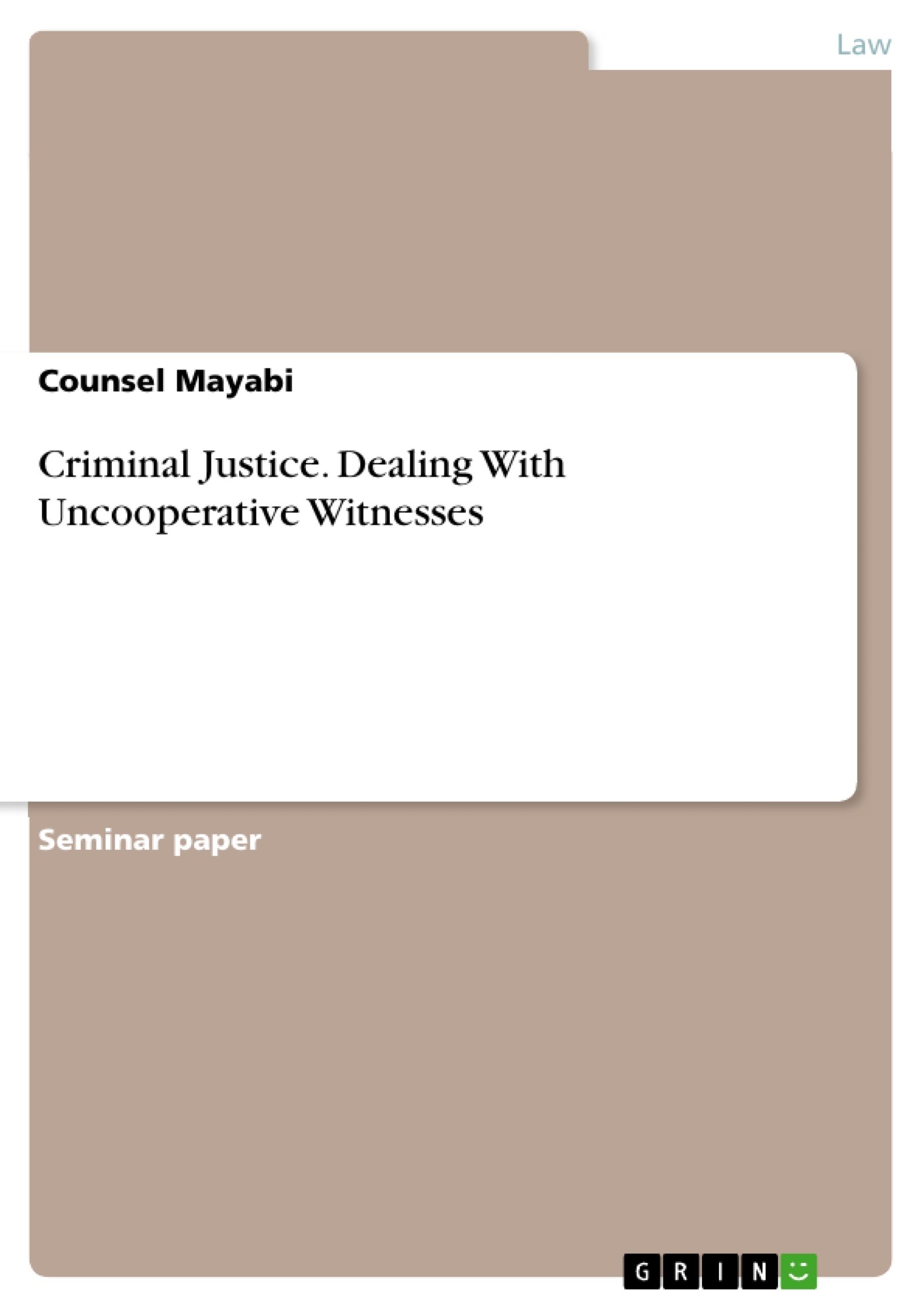There are a number of requirements to be met before any lawyer could prove a case in a court of law. Among them is the need to use credible evidence, competent witnesses and using the proper law. Sometimes there could be difficulties when dealing with witnesses that are crucial to a case but are not ready or willing to testify. Therefore, this paper addresses the options available when dealing with such witnesses.
Table of Contents
- Introduction
- Dealing with Uncooperative Witnesses
- Persuasion
- Subpoena Orders
- Witness Protection
- Witness Cooperation
- Police Reports
- Witness Preparation
- Neutral Environment
- Witness Separation
- Witness Rapport
Objectives and Key Themes
This paper examines the challenges of dealing with uncooperative witnesses in criminal investigations. It seeks to provide practical strategies for investigators to overcome these challenges and obtain essential evidence for prosecution.
- The importance of witness testimony in criminal investigations
- Obstacles to witness cooperation, including fear of retaliation and self-incrimination
- Techniques for persuading reluctant witnesses to provide information
- Strategies for protecting witnesses and ensuring their safety
- Best practices for conducting witness interviews to maximize information gathering
Chapter Summaries
The introduction highlights the crucial role of witness testimony in criminal investigations and the challenges posed by uncooperative witnesses. It explores the potential consequences of failing to secure witness cooperation, emphasizing the need for effective strategies to overcome these obstacles.
The paper then delves into various techniques for dealing with uncooperative witnesses, including persuasion, subpoena orders, and witness protection measures. It examines the legal framework governing witness protection and the importance of confidentiality in safeguarding the identities and safety of witnesses.
The final section focuses on practical strategies for encouraging witness cooperation, including reviewing police reports, allowing witnesses time to prepare for interviews, creating a neutral and comfortable interview environment, separating witnesses for corroboration, and establishing rapport with witnesses to facilitate open communication.
Keywords
This paper explores key concepts related to criminal justice, witness cooperation, and investigative techniques. It delves into themes of witness protection, confidentiality, fear of retaliation, persuasion, subpoena orders, and best practices for conducting witness interviews. These topics are crucial for understanding the challenges and complexities of securing essential evidence in criminal investigations.
Frequently Asked Questions
What are the main obstacles to witness cooperation in criminal justice?
The primary obstacles include the fear of retaliation from the accused and the concern regarding self-incrimination.
How can investigators deal with uncooperative witnesses?
Investigators can use techniques such as persuasion, legal subpoena orders, and offering witness protection measures to secure vital information.
What is the importance of a "neutral environment" during witness interviews?
A neutral and comfortable environment helps to reduce stress and build rapport, making the witness more likely to share information openly.
Why is witness separation necessary in investigations?
Witnesses are separated to ensure that their testimonies are independent and to allow for accurate corroboration of the facts without mutual influence.
What role does a subpoena order play?
A subpoena is a legal order that requires a witness to testify in court or provide evidence, used when voluntary cooperation is not forthcoming.
What is witness rapport and why is it useful?
Rapport is the establishment of a trust-based relationship between the investigator and the witness, which is essential for facilitating open and honest communication.
- Quote paper
- Counsel Mayabi (Author), 2014, Criminal Justice. Dealing With Uncooperative Witnesses, Munich, GRIN Verlag, https://www.grin.com/document/292792



